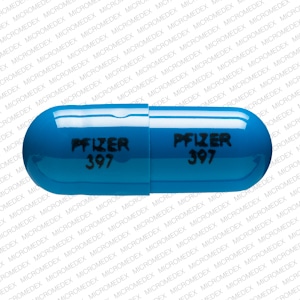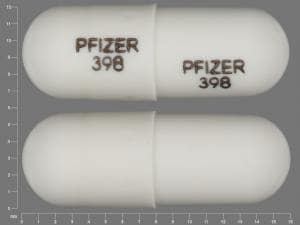What is Geodon?
Geodon is a type of prescription medicine called a psychotropic, also known as an atypical antipsychotic. Geodon can be used to treat symptoms of schizophrenia and acute manic or mixed episodes associated with bipolar disorder. Geodon can also be used as maintenance treatment of bipolar disorder when added to lithium or valproate.
Who should take Geodon?
Only your doctor can know if Geodon is right for you. Geodon may be prescribed for you if you have schizophrenia or bipolar disorder.
Symptoms of schizophrenia may include:
- hearing voices, seeing things, or sensing things that are not there (hallucinations)
- beliefs that are not true (delusions)
- unusual suspiciousness (paranoia)
- becoming withdrawn from family and friends
Symptoms of manic or mixed episodes of bipolar disorder may include:
- extremely high or irritable mood
- increased energy, activity, and restlessness
- racing thoughts or talking very fast
- easily distracted
- little need for sleep
If you show a response to Geodon, your symptoms may improve. If you continue to take Geodon there is less chance of your symptoms returning.
What is the most important information I should know about Geodon?
Geodon is not approved for the treatment of patients with dementia-related psychosis. Elderly patients with a diagnosis of psychosis related to dementia treated with antipsychotics are at an increased risk of death when compared to patients who are treated with placebo (a sugar pill).
Geodon is an effective drug to treat the symptoms of schizophrenia and the manic or mixed episodes of bipolar disorder. However, one potential side effect is that it may change the way the electrical current in your heart works more than some other drugs. The change is small and it is not known whether this will be harmful, but some other drugs that cause this kind of change have in rare cases caused dangerous heart rhythm abnormalities. Because of this, Geodon should be used only after your doctor has considered this risk for Geodon against the risks and benefits of other medications available for treating schizophrenia or bipolar manic and mixed episodes.
Your risk of dangerous changes in heart rhythm can be increased if you are taking certain other medicines and if you already have certain abnormal heart conditions. Therefore, it is important to tell your doctor about any other medicines that you take, including non-prescription medicines, supplements, and herbal medicines. You must also tell your doctor about any heart problems you have or have had.
Who should not take Geodon?
Elderly patients with a diagnosis of psychosis related to dementia. Geodon is not approved for the treatment of these patients.
Anything that can increase the chance of a heart rhythm abnormality should be avoided. Therefore, do not take Geodon if:
- You have certain heart diseases, for example, long QT syndrome, a recent heart attack, severe heart failure, or certain irregularities of heart rhythm (discuss the specifics with your doctor)
- You are currently taking medications that should not be taken in combination with ziprasidone, for example, dofetilide, sotalol, quinidine, other Class Ia and III anti-arrhythmics, mesoridazine, thioridazine, chlorpromazine, droperidol, pimozide, sparfloxacin, gatifloxacin, moxifloxacin, halofantrine, mefloquine, pentamidine, arsenic trioxide, levomethadyl acetate, dolasetron mesylate, probucol or tacrolimus.
What should I tell my healthcare provider before taking Geodon?
Only your doctor can decide if Geodon is right for you. Before you start Geodon, be sure to tell your doctor if you:
- have had any problem with the way your heart beats or any heart related illness or disease
- any family history of heart disease, including recent heart attack
- have had any problem with fainting or dizziness
- are taking or have recently taken any prescription medicines
- are taking any over-the-counter medicines you can buy without a prescription, including natural/herbal remedies
- have had any problems with your liver
- are pregnant, might be pregnant, or plan to get pregnant
- are breast feeding
- are allergic to any medicines
- have ever had an allergic reaction to ziprasidone or any of the other ingredients of Geodon capsules.
- have low levels of potassium or magnesium in your blood
Your doctor may want you to get additional laboratory tests to see if Geodon is an appropriate treatment for you.
Geodon and other medicines:
There are some medications that may be unsafe to use when taking Geodon, and there are some medicines that can affect how well Geodon works. While you are on Geodon, check with your doctor before starting any new prescription or over-the-counter medications, including natural/herbal remedies.
How should I take Geodon?
- Take Geodon only as directed by your doctor.
- Swallow the capsules whole.
- Take Geodon capsules with food.
- It is best to take Geodon at the same time each day.
- Geodon may take a few weeks to work. It is important to be patient.
- Do not change your dose or stop taking your medicine without your doctor's approval.
- Remember to keep taking your capsules, even when you feel better.
What are the possible side effects of Geodon?
Because these problems could mean you're having a heart rhythm abnormality, contact your doctor immediately if you:
- Faint or lose consciousness
- Feel a change in the way that your heart beats (palpitations)
Common side effects of Geodon include the following and should also be discussed with your doctor if they occur:
- Feeling unusually tired or sleepy
- Nausea or upset stomach
- Constipation
- Dizziness
- Restlessness
- Abnormal muscle movements, including tremor, shuffling, and uncontrolled involuntary movements
- Diarrhea
- Rash
- Increased cough / runny nose
If you develop any side effects that concern you, talk with your doctor. It is particularly important to tell your doctor if you have diarrhea, vomiting, or another illness that can cause you to lose fluids. Your doctor may want to check your blood to make sure that you have the right amount of important salts after such illnesses.
For a list of all side effects that have been reported, ask your doctor or pharmacist for the Geodon Professional Package Insert.
What to do for an overdose:
In case of an overdose, call your doctor or poison control center right away or go to the nearest emergency room.
Other important safety information:
- A serious condition called neuroleptic malignant syndrome (NMS) can occur with all antipsychotic medications including Geodon. NMS is a rare but serious side effect that could be fatal. Tell your doctor if you experience any of the signs of NMS. Signs of NMS include:
- very high fever
- rigid muscles
- shaking
- confusion
- sweating
- increased heart rate
- increased blood pressure
- Delayed-onset drug reaction called drug reaction with eosinophilia and systemic symptoms (DRESS) can occur with ziprasidone. Other severe cutaneous adverse reactions (SCAR), such as Stevens-Johnson syndrome can occur with ziprasidone. DRESS and other SCAR are sometimes fatal; therefore, tell your doctor immediately if you experience any of the signs of them.
- Signs of DRESS may include rash, fever, and swollen lymph nodes.
- Signs of Stevens-Johnson syndrome may include rash with blisters which could include ulcers in mouth, skin shedding, fever and target-like spots in the skin.
- Adverse reactions related to high blood sugar (hyperglycemia), sometimes serious, have been reported in patients treated with atypical antipsychotics. There have been few reports of hyperglycemia or diabetes in patients treated with Geodon, and it is not known if Geodon is associated with these reactions. Patients treated with an atypical antipsychotic should be monitored for symptoms of hyperglycemia.
- Dizziness caused by a drop in your blood pressure may occur with Geodon, especially when you first start taking this medication or when the dose is increased. If this happens, be careful not to stand up too quickly, and talk to your doctor about the problem.
- Before taking Geodon, tell your doctor if you are pregnant or plan on becoming pregnant. It is advised that you don't breast feed an infant if you are taking Geodon.
- Because Geodon can cause sleepiness, be careful when operating machinery or driving a motor vehicle.
- Since medications of the same drug class as Geodon may interfere with the ability of the body to adjust to heat, it is best to avoid situations involving high temperature or humidity.
- It is best to avoid consuming alcoholic beverages while taking Geodon.
- Call your doctor immediately if you take more than the amount of Geodon prescribed by your doctor.
- Geodon has not been shown to be safe or effective in the treatment of children and teenagers under the age of 18 years old.
Geodon Images
General information about the safe and effective use of Geodon
Medicines are sometimes prescribed for purposes other than those listed in a Medication Guide. Do not use Geodon for a condition for which it was not prescribed. Do not give Geodon to other people, even if they have the same symptoms you have. It may harm them Geodon is a prescription medicine and only your doctor can decide if it is right for you. If you have any questions or want more information about Geodon, talk with your doctor or pharmacist. You can also visit www.Geodon.com.
How should I store Geodon?
- Store Geodon capsules at room temperature (59°F to 86°F or 15°C to 30°C).
- Geodon for injection should be stored at 25°C (77°F); excursions permitted to 15°C to 30°C (59°F to 86°F) in dry form. Protect from light.
- Following reconstitution, Geodon for injection can be stored, when protected from light, for up to 24 hours at 15°C to 30°C (59°F to 86°F) or up to 7 days refrigerated, 2°C to 8°C (36°F to 46°F).
- Keep Geodon and all medicines out of the reach of children.
What are the ingredients in Geodon?
Active ingredients: ziprasidone hydrochloride
Inactive ingredients:
Tablets: lactose, unspecified form; magnesium stearate; starch, corn
Injection: methanesulfonic acid, betadex sulfobutyl ether sodium






